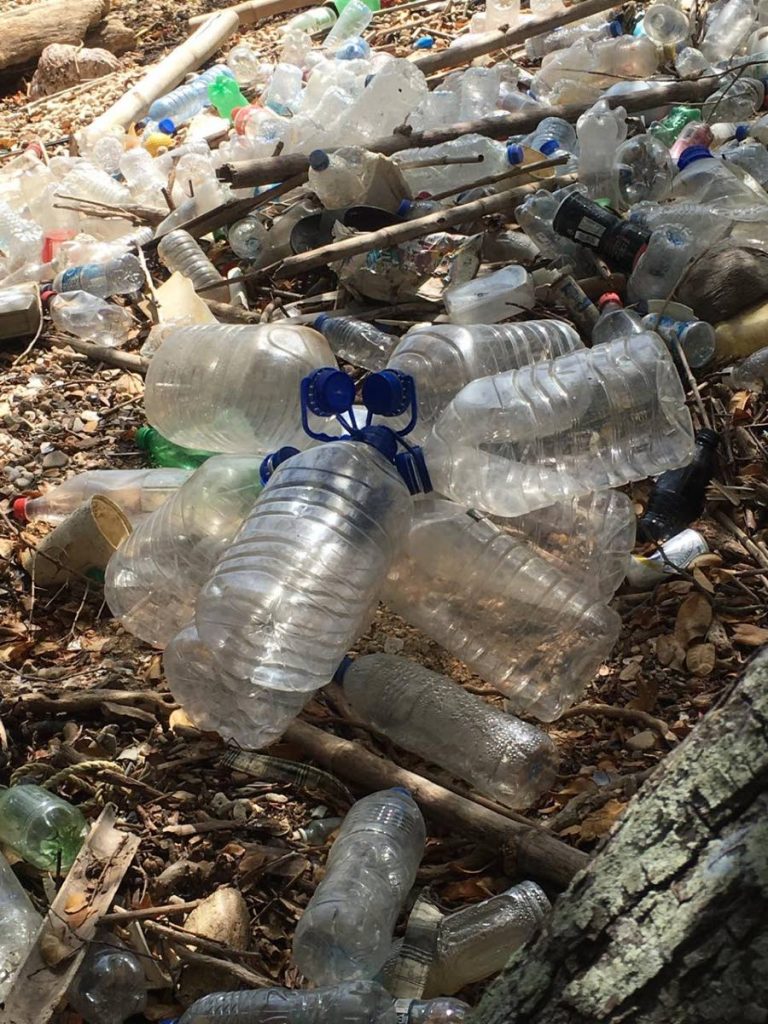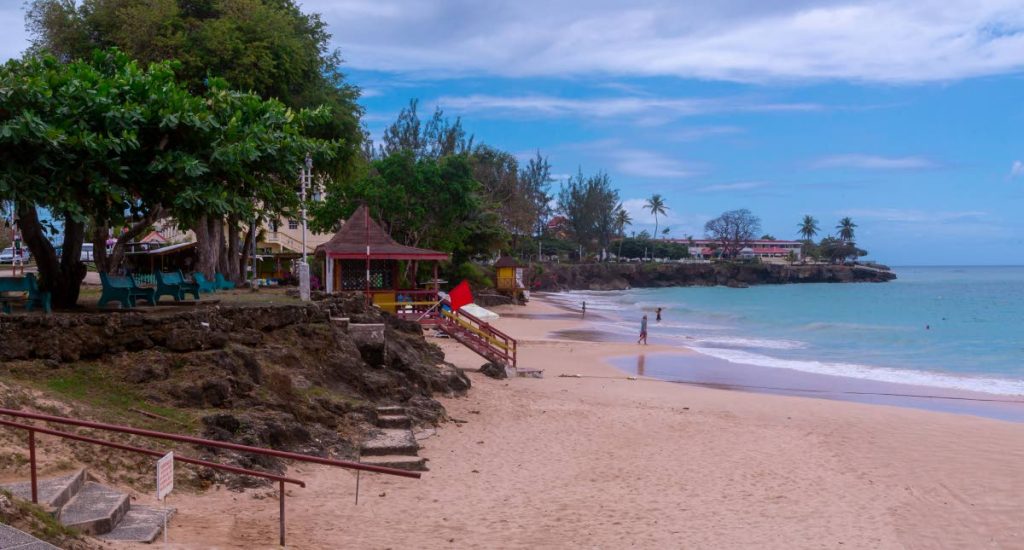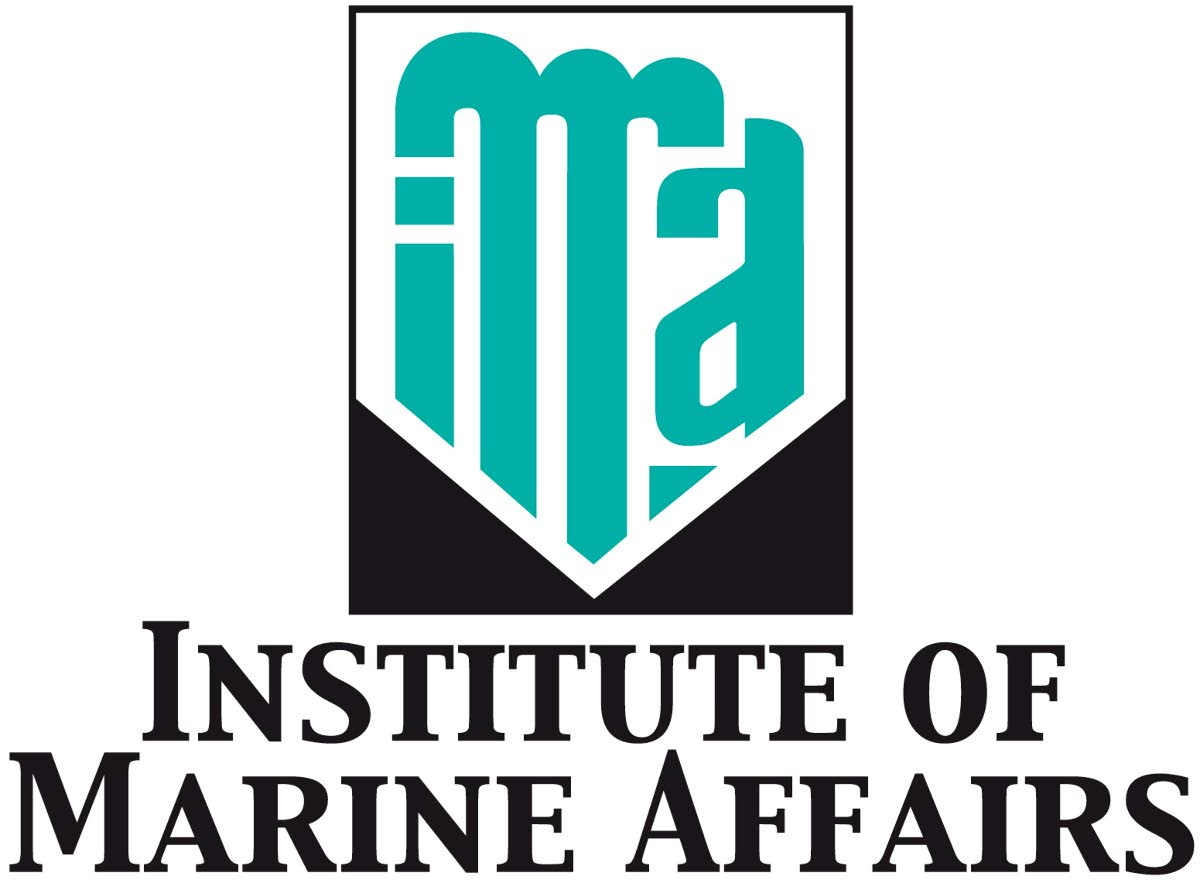From the backyard to the seas

Hamish Asmath
GIS Officer, Institute of Marine Affairs
Living in TT we are never far from the sea. In Trinidad, the farthest you can get from the sea is approximately 25 km, while in Tobago it is 5 km. To put that in context, if you are driving in a straight line at the speed limit of 100kph (the speed limit on the highways), in Trinidad you would reach the sea in 15 minutes, in Tobago, five minutes.
This proximity to the sea allows us to enjoy the beaches, waves, sand, waters and bake and shark every weekend, if we so choose. As the Government continues to ease covid19 restrictions and beaches have been re-opened to the public, we can potentially have a negative impact if we litter and leave our garbage there. From our backyards at home we can also have a negative impact upon the sea because of our proximity.
When we are changing our oil at home and spill some on the road; or we spray too much pesticide and/or fertilizer; or throw away that battery that ends up in the landfill instead of recycling it; the next rainfall that occurs washes these pollutants over the ground surface, into rivers, which lead out into the sea. Oil results in polycyclic aromatic hydrocarbons, fertilisers result in high levels of ammonia, nitrate, nitrite, and phosphates, while batteries can leach heavy metals. In the dry season many of the bush fires that plague the country remove the vegetation which stabilises and holds in situ soil. When the rains come soil is washed away by water into rivers, and this sediment is transported to the sea.
It has been estimated that 80 per cent of marine pollution originates from the land. Sampling throughout the Gulf of Paria by the Institute of Marine Affairs (IMA) illustrates huge plumes of nitrate, nitrite, ammonia, phosphates and sediment being released from the mouth of the Caroni River. Similar plumes are present at the mouths of rivers that empty into the Gulf of Paria.

The IMA is the regional activities centre for the protocol concerning pollution from land-based sources and activities to the Cartagena Convention. As the regional activities centre, the IMA has conducted heavy metals research in the Caura watershed and the Gulf of Paria and is currently undertaking a hydrological and pollution transport modelling project for the Caroni River Basin investigating sediment and nutrient species. These research activities will be used to inform policy development and plans designed to mitigate the amount of pollution from the land entering into the seas and affecting beaches.
Research takes time and effort. However, we can each make a difference. The next time we are at home in our backyards, remember to be careful not to spill when changing the oil, limit the spraying of pesticides and fertilisers and recycle those batteries. Remember to dispose of your solid waste and plant cuttings properly, if you throw in the drains and rivers, they end up on our beaches and seas. These small activities at home can potentially have an impact upon our collective enjoyment of our beaches and seas.



Comments
"From the backyard to the seas"